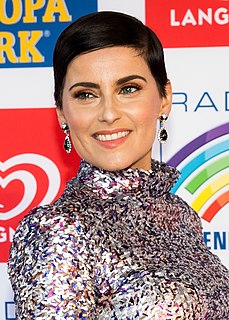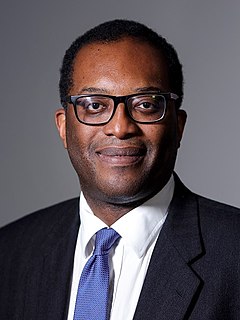A Quote by Rebecca MacKinnon
Facebook and Google are battling over who will be our gateway to the rest of the Internet through 'like' buttons and universal logins - giving them huge power over our online identities and activities.
Related Quotes
When we hate our enemies, we are giving them power over us: power over our sleep, our appetites, our blood pressure, our health and our happiness. Our enemies would dance with joy if only they knew how they were worrying us, lacerating us, and getting even with us! Our hate is not hurting them at al, but our hate is turning our days and nights into a hellish turmoil.
Because of the irresistible nature of our own Imagos, I think the replication of it in music is a siren song - we love those tormented songs, and we listen to them over and over and over the way that we smash ourselves into our lovers, or the same kind of lover, over and over. That drive is tireless, until it is resolved. And we can "enjoy" it safely through music, which is a simulacrum we have power over.
Facebook has never been merely a social platform. Rather, it exploits our social interactions the way a Tupperware party does. Facebook does not exist to help us make friends, but to turn our network of connections, brand preferences and activities over time - our 'social graphs' - into money for others.
Since our online libraries are so extensive, we think we can make all the right decisions about our personal health and well-being by pushing buttons. It's not intuitive anymore. That's the internet. Before the net, we would have gone to the community or our families to see what we should do. We often feel more isolated on our own little islands because of it.
The idea that, in the age of Google, Facebook and the internet, government can control the 'commanding heights' of the economy is one of the great delusions of our age. Modern techonology, social media, the explosion of online retail, among many other things, have meant that governments have less and less control.
No matter what, we always have the power to choose hope over despair, engagement over apathy, kindness over indifference, enthusiasm over lethargy, love over hate. This is our true freedom. Whatever life may throw at us, we have the freedom and ability to choose our attitude. And I believe it is in those moments of choice that we manifest our destiny.
A false identity is any lie that contradicts our God-given identities through Scripture. These false identities can be created by ourselves because of sin in our lives, choices made, or wrong turns taken and the regret, guilt, and shame that follows. Other false identities are handed to us by outside sources, maybe a damaging word spoken to us by someone or a childhood of abuse. However, not all false identities are negative on the surface, such as successful, attractive, wealthy, athletic, or talented. But even those identities can become false when we place too much of our weight on them.
It is not true that the legislator has absolute power over our persons and property, since they pre-exist, and his work is only to secure them from injury. It is not true that the mission of the law is to regulate our consciences, our ideas, our will, our education, our sentiments, our works, our exchanges, our gifts, our enjoyments. Its mission is to prevent the rights of one from interfering with those of another, in any one of these things.
We overvalue nonessentials like a nicer car or house, or even intangibles like the number of our followers on Twitter or the way we look in our Facebook photos. As a result, we neglect activities that are truly essential, like spending time with our loved ones, or nurturing our spirit, or taking care of our health.
The 'old' Internet is shrinking and being replaced by walled gardens over which Google's crawlers can't climb. Sure, Google can crawl Facebook's 'public pages,' but those represent a tiny fraction of the 'pages' on Faceboo, and are not informed by the crucial signals of identity and relationship which give those pages meaning.
[On the Internet and activism:] The danger of the Internet is cocooning with the like-minded online - of sending an email or twitter and confusing that with action - while the real corporate and military and government centers of power go right on. In a way, the highest purpose of the Internet is to bring us together for empathy and action. After all, the reflector cells and empathy-producing chemicals in our brains only work when we're physically together with all five senses. You can't raise a baby online.































